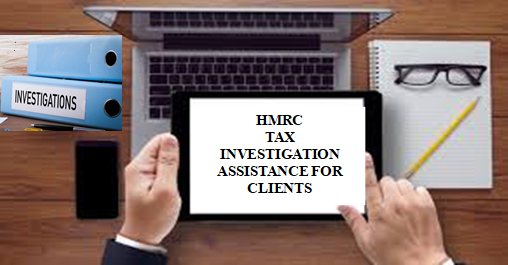Tax Investigation

HMRC could randomly select anyone for investigation. As an accountant, you’ll
need to assist if one of your clients is investigated – accruing potentially
thousands of pounds in client fees in the meantime.
An investigation by HMRC is every small business owner and sole trader’s worst
nightmare. Along with the enormous stress, it can take up a great deal of time and, in the worst case scenario, you could end up with a tax bill.
Everyone hopes they won’t be investigated, but it’s important to be prepared just in case. So whether you’re facing an investigation or want to make sure you won't be subject to one, read on for our guide on what you need to know.
What might trigger an HMRC investigation?

There are several reasons why you might attract HMRC's attention and eventually be investigated. These include:
- · they receive a tip off
- · your returns show unprofitability for multiple years
- · your returns regularly include mistakes
- · there are large fluctuations in your reported figures, for example income or business expenses
- · your figures look dramatically out of kilter with the normal position for a business in your industry
- · you report that the company directors are earning less than employees
- · they suspect you're omitting income
- · you don't have accountants - it's been suggested that HMRC are less likely to investigate those who have an accountant prepare their returns
What are the different types of HMRC investigation?
Not all enquiries by HMRC are the same, and the type of investigation you may be subject to will depend on their suspicions or concerns. There are two main types of HMRC enquiry:
Full enquiry
These may take place when HMRC believes there is a high risk of errors on your returns. If you’re subject to a full enquiry, the Revenue will look through all of your business records - and, potentially, the personal records of any company directors.
Aspect enquiry
An aspect enquiry happens when HMRC is concerned about one or more specific elements of your finances. This type of enquiry is much more common in the case of genuine mistakes, as opposed to wilful tax evasion.
What can HMRC check?
If HMRC launch an investigation into you or your business, there's a broad range of records and documents they might check. They'll contact you or your accountant in advance to set out the evidence they want to see or information they're collecting. Generally this will include:
- · information on the taxes you’ve paid (remember that this isn’t just limited to income tax or Corporation Tax)
- · your books, and details of the tax calculations you’ve made
- · annual returns, if the investigation is into a limited company
- · your Self Assessment returns, if the investigation is into a sole trader. In addition, HMRC may wish to see Self Assessments for company directors if the investigation is into a limited company
- · PAYE records where applicable
What happens during an HMRC visit?
HMRC need to adhere to strict procedures when visiting. You might want to ask them for a copy of the rules in advance, or your accountant may be able to advise.
HMRC may ask to visit you at your business premises, home, or your accountant's office. Alternatively, they may ask you to visit them. They can't legally force you to attend, but doing so willingly is generally seen as a sign of co-operation and may have an impact on the outcome of the investigation. You're entitled to have an advisor such as your accountant present.
HMRC must tell you what they want to discuss in advance of a visit. If you wish, you're also entitled to ask for the agenda in writing before the event, and the HMRC officials must stick to this agenda. It's absolutely vital that you answer the questions to the best of your knowledge, and that you give complete and accurate information.
What happens after an HMRC investigation?
Once the investigation finishes, HMRC will write to you to explain the outcome.
If they find something wrong on your returns but don't believe the errors were made fraudulently or negligently, they'll tell you how they think the return needs to be corrected. You have 30 days to make the correction. If you fail to do so within this time, HMRC can correct the return themselves.
If HMRC believe that you have acted with negligence or fraudulently, you'll be made to pay penalties, extra tax, and interest. You'll normally be required to sign a contract pledging to do so, in exchange for HMRC waiving their rights to prosecute. It's vital that you get legal advice if this happens to you.
Can I get tax investigation insurance?
Tax investigations are not only stressful and scary - they can also be expensive. Aside from a potential additional tax liability and penalties, investigations are time-consuming. We can assist you to arrange for an insurance cover from our trusted partners
For more information, contact our specialists Tax Team on 020 8343 3523 or email us at info@multiplechoiceaccountancy.com